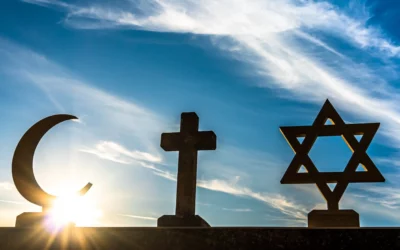
Written by Derek Monson
January 25, 2021
Originally published in Washington Examiner
President Biden’s inaugural speech called upon America’s political leaders to rise above our divisions and move beyond our differences. Now comes the hard part: doing it. If Democrats and Republicans, liberals and conservatives continue to cleave to ideological and political comfort zones, fulfilling the president’s charge will be impossible.
Biden has the opportunity to set such an example in one of the most controversial policy issue areas of the last two decades: religious freedom.
Both sides of the aisle have encouraged political violence and riots in the last year, in their own ways. Democrats and liberals justified or minimized violent riots in the wake of George Floyd’s death. Republicans and conservatives encouraged, via their rhetoric, the Washington riot that led to the storming of the U.S. Capitol Building. Both riots reveal social division rooted in perceptions of injustice.
Overcoming such cleavages forces us to rise above political divisions manufactured by advocacy strategies and campaign tactics to raise money and maintain policy purity in legislation, which rarely becomes law. This artificial division also exists in religious freedom, an issue Biden must address early in his term one way or another.
Congressional Democrats want to get the Equality Act on the president’s desk. This legislation creates reasonable federal anti-discrimination protections for gay and transgender citizens but then goes beyond that to reduce federal protections for religious freedom. We’ve learned in Utah that such policy excesses are unnecessary.
For more than five years, Utahns have lived peacefully together under a policy compromise on religious freedom. We married an anti-discrimination law for the gay and transgender communities with stepped-up legal protections, some new and groundbreaking, for the religious community. We haven’t solved everything, and homophobic or anti-religious prejudice continues to exist in the extremes of either side. Laws, after all, do not change human nature. But we have established that a dual commitment to religious freedom and equality means we can resolve our differences and rely on that pattern down the road. We have followed that pattern again and again and again to create workable, peaceful solutions that protect religious freedom.
Utah offers Biden an example in unifying leadership. To move the country forward, he can rise above liberal demands for no compromise with religious freedom and conservative perceptions that principled compromise on religious freedom is impossible. Both extremes miss the mark.
Compromise that offers anti-discrimination protection in the basic necessities of life while creating new protections for religious freedom is not only possible, but desirable. Pursuing such compromise inevitably forces both sides to see in each other the human dignity and well-intended motivations that they claim for themselves. It puts polarized advocates face to face with the inconvenient truth that those they disagree with are not the evil caricatures portrayed in campaign commercials or in the letters they use to raise money.
Successfully pursuing that compromise in Utah transformed a divisive debate into a moment to understand people better. In today’s terms, a chance to spark a riot became instead a driver of civic renewal and healing.
Biden can do the same for the nation if both he and his administration apply a commitment to the principles and values laid out in his inaugural address toward both political friends and political opponents. Few issues offer a better or more beautiful opportunity to do this than religious freedom.
More Insights
Read More
Looking at Supreme Court and religious freedom through the lens of the presidential campaign
Two constitutional issues highlight similarities and differences between the Biden and Trump administrations.
Education policy to consider during the 2024 election season
Here’s a look at what each presidential candidate is likely to focus on in education, given their track records and campaign platforms.
Ignoring the text of the Constitution is a mistake
A written Constitution is entirely superfluous if the document is simply meant to give the people what they want.


